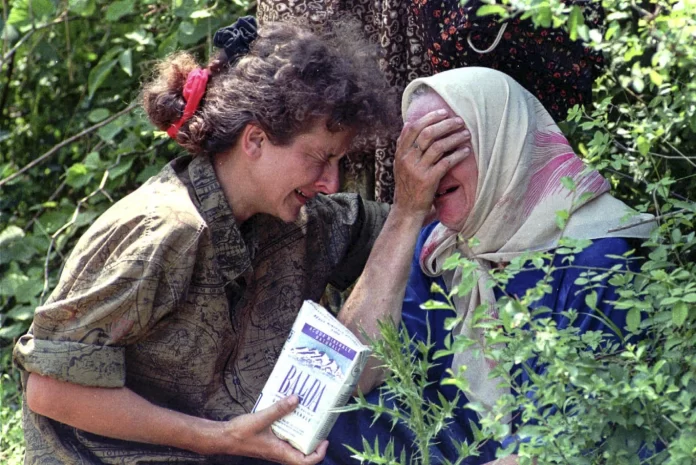16 May 2024: A United Nations resolution sponsored by Germany and Rwanda to establish an annual day of commemoration for the 1995 genocide of over 8,000 Bosnian Muslims by Bosnian Serbs has met with significant opposition, according to an AP report. Serbia’s President Aleksandar Vucic and the Bosnian Serb leadership are leading a strong lobbying campaign against the resolution’s adoption.
The U.N. General Assembly is scheduled to debate and vote on the resolution on May 23. If passed, the resolution will designate July 11 as the “International Day of Reflection and Commemoration of the 1995 Genocide in Srebrenica,” starting this year. The resolution also requests the U.N. to create an outreach program and encourages global observance through educational and memorial activities.
The Srebrenica massacre, which began on July 11, 1995, marked a grim peak in the Bosnian War, which erupted after the disintegration of Yugoslavia. Bosnian Serb forces overran the U.N.-protected safe area in Srebrenica, separating and slaughtering more than 8,000 Muslim Bosniak men and boys.
In 2007, the International Court of Justice classified the Srebrenica massacre as genocide, the first in Europe since the Nazi Holocaust during World War II. Despite this, Serbian and Bosnian Serb leaders, including President Vucic, oppose the resolution, arguing it unfairly labels all Serbs as genocidal. They have been campaigning at the U.N. and among developing nations to secure a majority against the resolution.
The draft resolution condemns any denial of the Srebrenica genocide and the glorification of convicted war criminals, including Bosnian Serb leaders Radovan Karadzic and Ratko Mladic, who were convicted of genocide by a special U.N. war crimes tribunal.
Hungarian Foreign Minister Péter Szijjártó, following a meeting with Bosnian Serb leader Milorad Dodik, announced Hungary’s intention to vote against the resolution. He claimed the resolution would demonize the Serbian nation and exacerbate regional tensions.
During a U.N. Security Council meeting on Bosnia, U.S. Deputy Ambassador Robert Wood criticized Dodik’s rhetoric and emphasized the importance of acknowledging historical truths for regional reconciliation. Conversely, Russian U.N. Ambassador Vassily Nebenzia argued the resolution, introduced without full Bosnian consent, violated the country’s constitution and the 1995 Dayton peace agreement.
Chinese Deputy U.N. Ambassador Geng Shuang called for further dialogue among the resolution’s sponsors, key parties, and member states to achieve consensus, noting significant differences in opinion. Germany and Rwanda have expressed willingness to consider Serbia’s proposed amendments to the resolution’s text.




